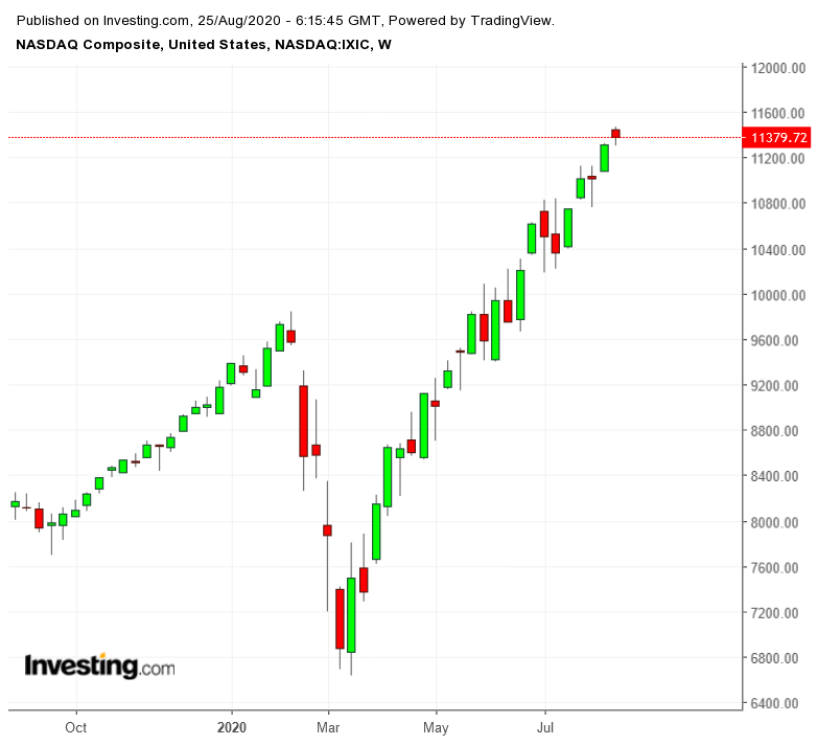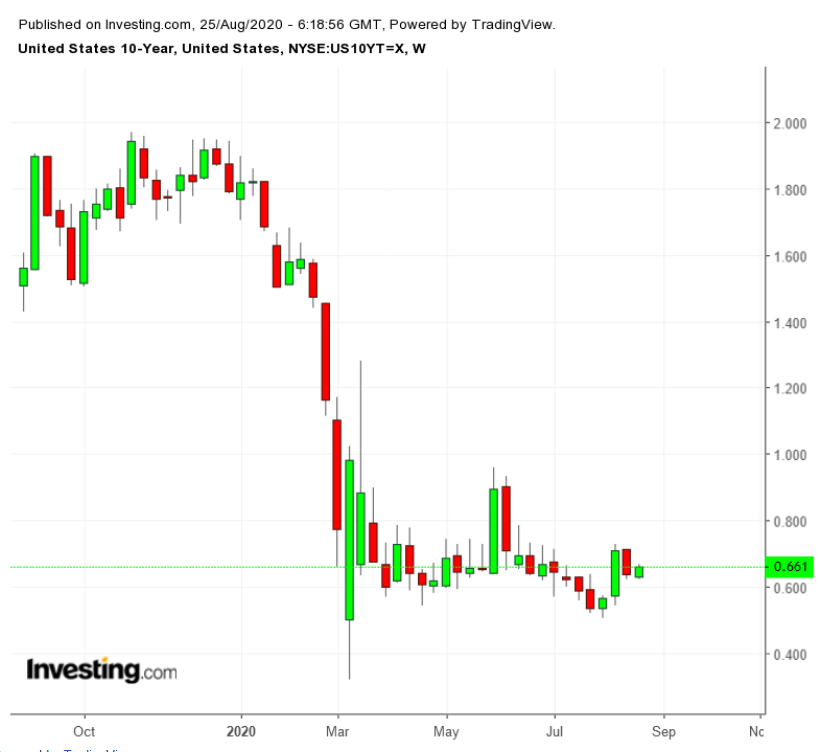It’s getting harder to square record low yields on US Treasuries with record high stock prices in the broader equity indices. A flight into Treasuries amid COVID-19 uncertainty and a boomingly optimistic stock market seem at odds with each other.
The S&P 500 set its third record in five sessions, closing at 3,431.28 on Monday as the Food and Drug Administration approved the use of convalescent plasma to treat COVID-19.

The NASDAQ also set another new record Monday, closing at 11,379.72.
The benchmark 10-year Treasury note, meanwhile, is yielding about 0.65%, down nearly a full percentage point from its February level.
As a result, there is a growing school of thought that the two trends are related and that stocks are going to new highs precisely because government bond yields are going so low.

The Federal Reserve’s role in creating this conundrum is pivotal. The Fed’s commitment to maintaining near-zero short-term rates indefinitely and its ongoing asset purchases are combining to suppress Treasury yields.
Fed Induced Inversion As Both Markets Rising In Tandem
The Fed intervention thwarts the historic trend of investors getting out of bonds—driving up yields because these move inversely to declining prices—and piling into stocks when they are on the upswing. Instead, prices are now rising in both markets as the Fed supports bonds with its actions.
In short, investors should not take the decline in Treasury yields as a sign that stocks are heading for a correction, according to widely reported remarks last week by Mark Haefele, chief investment officer at UBS Global Wealth Management.
A key metric in all this is the equity risk premium, which measures the difference between the risk-free rate in Treasuries and the return on stocks. This ERP has risen nearly a full percentage point to 6.3% over the past six months, according to one calculation, in another bullish indicator for stocks.
Even as nominal yields have declined, the measure of inflation expectations derived from Treasury inflation-protected securities—the difference between the yield on TIPS and the nominal Treasury yield—has risen.
The decline in the yield on 10-year TIPS to a minus 1.00% from a minus 0.2% in March has restored inflation expectations to near their pre-pandemic 1.7%. This is bullish for stocks since investors expect dividends to rise with inflation while bond prices will decline.
This Fed-induced inversion in traditional market trends may last for some time, as long as the Fed maintains its low-interest-rate policy.
Haefele recommends that investors who share this point of view should pay close attention to what the Fed says, and be ready to shift their view on asset prices accordingly.
The Fed’s dominant role in steering markets in this manner has ratcheted up interest in chairman Jerome Powell’s planned remarks this week on the central bank’s policy strategy review.
As part of the virtual Jackson Hole symposium, Powell is expected to announce the shift in Fed strategy to overshoot the inflation target of 2%, a pledge which would guarantee easy money for some time to come as the Fed tries to stimulate the economy.
